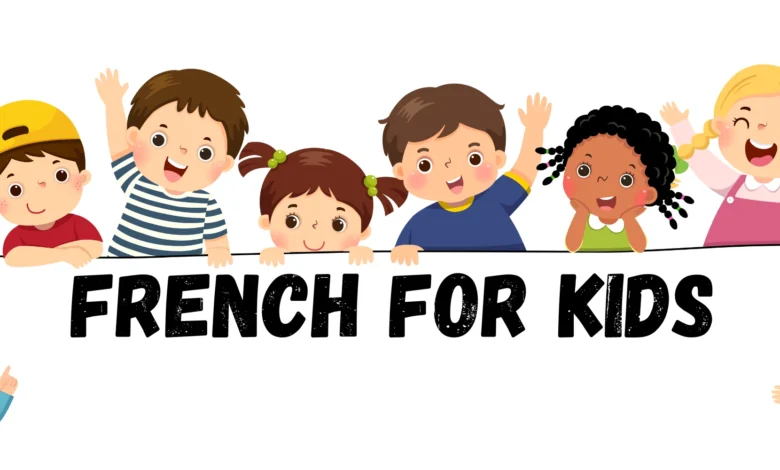French Language Learning for Kids

From the moment a child utters their first word, their brain is wired for language. Introducing French early can transform that wiring into a pathway of curiosity, flexibility, and global opportunity. In this article, we’ll explore why French language learning for kids is so beneficial, when and how to start, practical strategies for families, challenges to anticipate, and tips to maximize long‑term success.
Why French Language Learning for Kids Matters
French is more than a beautiful language—studying it early unlocks academic, cognitive, and cultural advantages that can resonate across a child’s life.
Cognitive & Executive Gains
Bilingualism and language immersion have been linked to improved attention control, inhibition (i.e. resisting distractions), and mental flexibility. French language learning for kids accelerates development of general cognitive functions related to attention and inhibition.
In immersion or dual-language programs, some studies find that children outperform non-immersed peers on tasks involving cognitive flexibility and working memory—though the results are not always consistent across all ages or programs.
A more nuanced study of French–English bilingual children found that measures of language dominance and language usage did not reliably predict cognitive flexibility, suggesting individual differences play a role.
Thus, while French language learning for kids offers potential cognitive benefits, the extent may depend on how balanced their use of both languages is, the consistency of exposure, and individual factors.
Academic & Language Benefits
Children enrolled in French immersion programs often perform as well as or better than their monolingual peers in core subjects—math, reading, science—even though part of their instruction is in French.
Learning French also strengthens meta‑linguistic awareness: thinking about language structure, noticing patterns, and comparing languages. This awareness often transfers into stronger skills in their native language and better reading comprehension.
Because French shares many cognates and roots with English, children sometimes grasp vocabulary connections more easily. Many English words derive from French or share Latin roots.
Cultural & Global Advantages
French is spoken across five continents and remains a working language in international diplomacy, art, literature, and global business.
When children learn French, they open doors to francophone cultures—films, stories, traditions, and cross-cultural exchange. This kind of cultural literacy fosters empathy, curiosity, and a more global mindset.
In a world that values multilingual skills, kids who grow up knowing French may find more doors open—study abroad, scholarships, bilingual career paths, or being a bridge between cultures.
When and How to Begin French Language Learning for Kids
The Best Time to Start
Many language experts advocate beginning language exposure before age 6 (especially between birth and 6) because young children are more adept at acquiring pronunciation, intonation, and phonetic nuance.
That said, beginning later is far from useless—what matters most is consistency, richness of exposure, and motivation. Even children who start at age 7 or 8 can develop high proficiency with sustained effort.
Multisensory, Playful Learning
Kids learn best when multiple senses and modalities are engaged. Research shows that vocab taught with gestures or pictures helps retention more than auditory-only methods.
Embedding French in songs, games, movement, storytelling, and visuals makes learning active and playful. This aligns with the “learning through play” approach, which supports cognitive development by letting children explore, test, and internalize concepts naturally.
In sum: the earlier you start, the more natural pronunciation may become; but the quality and variety of exposure over time are equally critical.
Practical Strategies for Families
Even if you aren’t fluent in French yourself, you can support your child’s journey. Below are approachable strategies:
Daily Micro‑Exposure
Use simple French phrases around the house: greetings, counting, naming objects (la porte, le chien), or short commands (“range les jouets”). Fifteen minutes a day consistently is more effective than occasional long sessions.
Songs, Rhymes & Music
Use children’s songs and nursery rhymes in French. The rhyme, rhythm, and repetition help embed vocabulary. For instance, “Frère Jacques,” “Alouette,” or modern kids’ French music.
Picture Books & Storytime
Read French picture books, even if you don’t understand every word. Use illustrations, point to words, pause to repeat phrases. Bilingual editions help too.
Cartoons & Media for Kids
Cartoons dubbed in French or simple educational videos let children hear native speech in context. Keep them age-appropriate and limit screen time.
Labeling & Immersion Environment
Label everyday items in French around the home. Create a mini-immersion zone—one area or time period where only French is spoken (e.g. “French hour” at snack time).
Apps & Online Programs for Kids
Interactive apps with games, stories, and quizzes can reinforce vocabulary and grammar. Choose programs designed specifically for children.
Play & Games in French
Play matching card games, “Simon dit” (Simon says), memory games, or treasure hunts using French vocabulary. Make it a fun language adventure rather than a drill.
Language Playdates & Community
If possible, find a local French club, a parent or tutor, or playdates with other kids learning French. Real interaction helps sustain motivation.
Celebrate Progress
Celebrate small wins—learning a new song, ordering snack in French, or understanding a phrase. Positive reinforcement builds confidence.
Challenges & Tips to Overcome Them
Even with the best intentions, obstacles arise in French language learning for kids. Here’s how to navigate them:
Limited Exposure Outside the Home
If your region lacks French immersion schools or native speakers, your child’s exposure may be narrow. Counter this by using digital media, penpals, or online conversation exchanges.
Motivation & Resistance
Children may resist speaking French, especially if they feel self-conscious. Make it playful, low-stakes, and let them lead at times. Avoid pressuring them to perform.
Plateaus in Progress
Language learners sometimes plateau. Introduce variety: new songs, stories, or games. Revisit known material in new contexts.
Balancing Both Languages
In dual-language settings, a child may default to their dominant language (e.g. English). Encourage separation by context (French times vs English times) and consistent reinforcement.
Maintenance & Attrition
If French is not used, skills can fade. Keep the language alive through media, trips, and conversation. Even occasional use helps retention.




